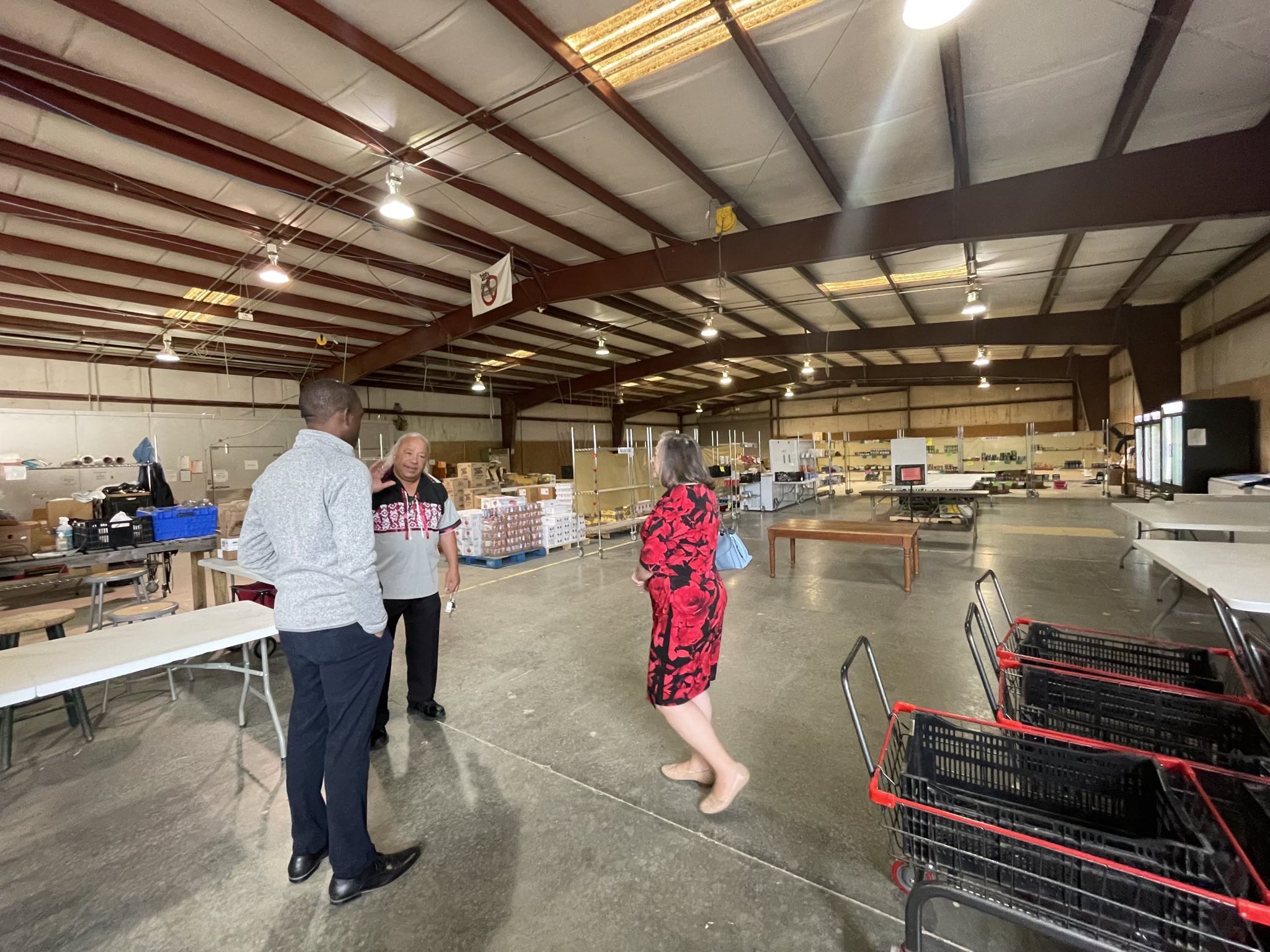
- Details
- By Native News Online Staff
The Chickahominy Indian Tribe, located in Providence Forge, Virginia, welcomed United States Treasurer Marilynn “Lynn” Malerba (Mohegan Tribe) and Deputy Secretary of the Treasury Wally Adeyemo on Thursday to discuss the historic investments in Indian Country made by the Biden-Harris administration.
During their visit, the Treasury leaders toured the Tribal Health Clinic and engaged with a family who had received assistance from the Homeowner Assistance Fund (HAF), a provision of the American Rescue Plan (ARP).
Additionally, they had the opportunity to explore the tribe's re-acquired ancestral territory. Deputy Secretary Adeyemo and Treasurer Chief Malerba convened a roundtable discussion with tribal leaders hailing from various regions in Virginia. This session facilitated conversations about the economic aspirations and challenges faced by tribes throughout Indian Country and on how federal funding is contributing to tribal economic growth.
During the Biden-Harris administration, the Treasury Department has intensified its commitment to Indian Country. In June 2022, Secretary of the Treasury Janet L. Yellen visited the Rosebud Indian Reservation, which marked the first time a treasury secretary ever visited an Indian reservation. The Treasury Department has made unprecented investments in tribal communities, including implementing the largest-ever single infusion of federal funding into Indian Country through the State and Local Fiscal Recovery Fund’s $20 billion set-aside for Tribes, investing an historic $234 million in Native-owned and Native-majority shareholder depository institutions through the Emergency Capital Investment Program (ECIP), and making the two largest infusions of federal capital to Native community development financial institutions (CDFIs)
Additionally on Thursday, the Financial Literacy and Education Commission (FLEC) – chaired by Secretary Yellen – published a new Tribally-focused webpage on MyMoney.gov to serve as a central source for the posting of financial literacy and educational resources available to Tribal communities by federal agencies. This webpage is in response to Tribal leader feedback about the need to streamline access to Tribally-specific financial literacy resources, and serves as another example of the Department’s commitment to integrating Tribal feedback into improved federal policy and support for Tribal economic advancement.
More Stories Like This
Native News Weekly (August 25, 2024): D.C. BriefsNavajo Nation Mourns the Passing of Former Vice President Rex Lee Jim
Deb Haaland Earns Endorsement From Communications Workers of America Local 7076
University Soccer Standout Leads by Example
Two Native Americans Named to Democratic Congressional Campaign Committee's“Red to Blue” Program
Help us defend tribal sovereignty.
At Native News Online, our mission is rooted in telling the stories that strengthen sovereignty and uplift Indigenous voices — not just at year’s end, but every single day.
Because of your generosity last year, we were able to keep our reporters on the ground in tribal communities, at national gatherings and in the halls of Congress — covering the issues that matter most to Indian Country: sovereignty, culture, education, health and economic opportunity.
That support sustained us through a tough year in 2025. Now, as we look to the year ahead, we need your help right now to ensure warrior journalism remains strong — reporting that defends tribal sovereignty, amplifies Native truth, and holds power accountable.
 The stakes couldn't be higher. Your support keeps Native voices heard, Native stories told and Native sovereignty defended.
The stakes couldn't be higher. Your support keeps Native voices heard, Native stories told and Native sovereignty defended.
Stand with Warrior Journalism today.
Levi Rickert (Potawatomi), Editor & Publisher

